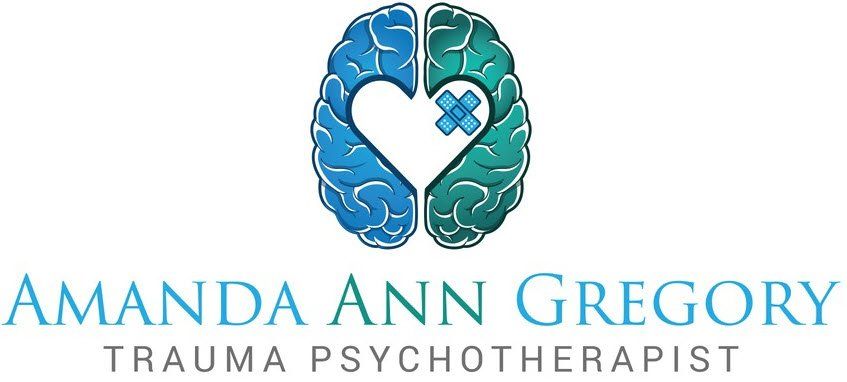How Family Estrangement May Benefit Trauma Survivors
It’s been years since I’ve seen or spoken to my mother, and it was one of the best decisions of my life.
I was the perfect daughter who earned straight As, behaved well, and acted as a caretaker for my mother and younger brother. Then, I realized I had survived childhood emotional and physical neglect perpetrated by my parents, which negatively impacted my ability to thrive as an adult. When I decided to become estranged from my mother (my father had died years earlier), I made substantial progress in trauma recovery. My decision was not popular within my family, community, or society, yet it was necessary.
Family estrangement is a misunderstood and stigmatized experience. When trauma survivors discuss their estrangements with others, they are often met with judgment, gaslighting, and sometimes even victim blaming. Family estrangements can be short-term, long-term, or permanent, and there are many reasons why survivors may need to initiate and maintain estrangements. Understanding these needs might help decrease the stigma surrounding estrangement, allowing survivors to feel understood and supported.
Survivors require safe relationships.
“People don’t become estranged from people they feel safe with.” —Nate Postlethwait
Everyone needs safe relationships to thrive. These relationships do not cause sexual, physical, or emotional harm and are based on trust, respect, equality, and honest communication. Safe relationships are not void of conflicts; all relationships must have conflicts to grow and to be authentic. Conflicts are often repaired in safe relationships but tend to go unacknowledged, unrepaired, and continue to occur in unsafe relationships.
Some trauma survivors have had experiences in which people have harmed them. This harm could have been caused directly by an offender(s) or indirectly by a bystander(s) who failed to protect or support them. When family members have acted as offenders or bystanders they may be unable to provide safe relationships for survivors. Some family members who have caused harm can do the work needed to provide a safe relationship for survivors. In contrast, others may be incapable or unwilling to make the necessary changes to provide a safe relationship. These family members might continue to cause harm to survivors who may need to initiate estrangement to protect themselves. Survivors may also engage in estrangement to protect others, such as their children, siblings, and romantic partners.
Survivors need safe group dynamics.
Genetic or chosen families often represent the most common and influential group dynamic in one’s life. Trauma survivors need a community to heal and to thrive and these groups must be safe, as groups can cause as much harm as individual offenders and bystanders. Families with dysfunctional dynamics could hinder survivors’ recovery and quality of life. These dynamics are often present for years as they can be entrenched in intergenerational or historical trauma. Changing group dynamics requires the participation of multiple family members, not just changes made by the survivor alone. When families are willing to do the work needed to embrace safe group dynamics, survivors may not need to engage in estrangement. When families are unwilling or incapable of changing, survivors may initiate estrangement in order to discover and embrace a safer group.
Survivors require valuable relationships.
During trauma recovery, some survivors realize that although their family relationships are safe, they provide little value. These relationships may be lacking attachment, reciprocity, and joy. This is one of the most stigmatized reasons for family estrangement because many people cannot understand how a person could not benefit from family relationships or feel a sense of obligation to their family. Some may quote the popular saying, “Blood is thicker than water.” However, this phrase originated from the proverb, “The blood of the covenant is thicker than the water of the womb,” which conveys that those who go to battle and shed their blood together, the covenant, have stronger bonds than genetic family members who share the water of the womb. Although this interpretation is up for debate, it illustrates that some survivors could experience closer bonds with people outside of their genetic family. Survivors may choose estrangement in order to focus their efforts on initiating and maintaining relationships with others who provide more value.
Survivors need to exert their agency.
Many survivors were denied agency, the capacity to engage in action(s), when their traumatic experiences occurred. Agency is hindered by various circumstances, such as an abuser(s) denying or restricting one’s agency or the environment or situation that is out of one’s control. During the recovery process, survivors practice acknowledging and exerting their agency. They begin to learn that they have agency and can use it not only to survive but to thrive. When survivors engage in family estrangements they are exercising their agency.
There are many reasons why trauma survivors may need to initiate and maintain family estrangements. Understanding their needs might help to decrease stigma and allow survivors to feel seen, heard, understood, and accepted.
Sign up for my monthly newsletter and receive the free e-book 25 Anxiety and Trauma Coping Hacks. Sign up HERE.
Facebook image: Vladimir Gjorgiev/Shutterstock

All Rights Reserved | Amanda Ann Gregory, LCPC
Design & Consultation by Teresa Lauer, LMHC, GrowYourTherapyPractice.com *

